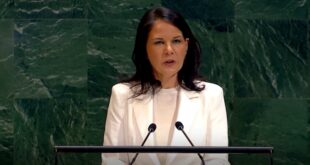The World Health Summit 2019 was recently concluded in Berlin, Germany. It once again highlighted the enormous opportunities awaiting Africa if it could tap into the potential of the Digital Age. Our Contributing Editor and global health enthusiast, Dr Michael Nnaji, was at the event and he reports.
This year’s World Health Summit (WHS), which took place between 27 and 29 October, was, as always, an eye-opener in more ways than one. Organized under the auspices of the Charité Universitätsmedizin (Charité University of Medicine), Berlin, it represents one of the world’s most influential health conferences.
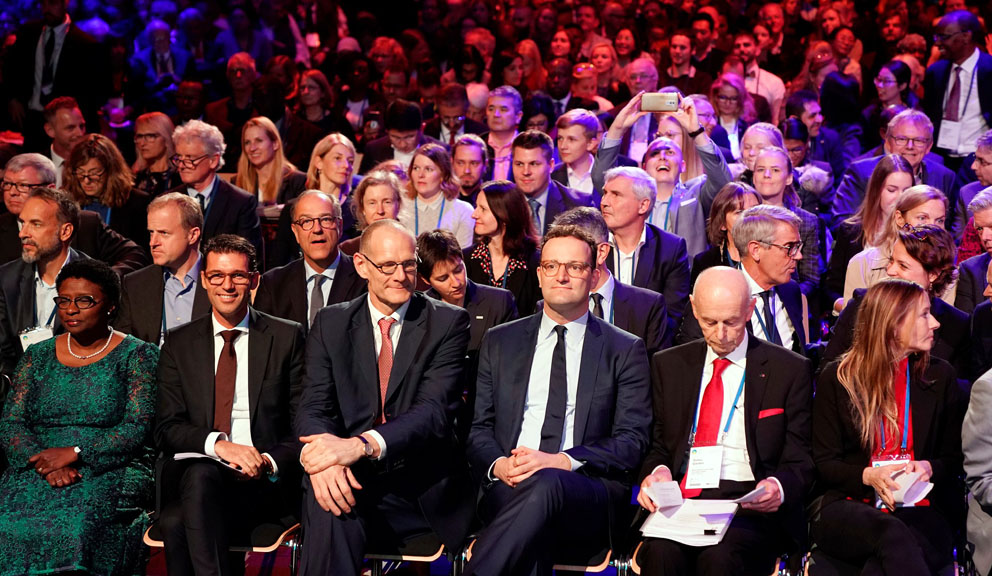
The WHS is a yearly event that holds in Berlin and is organized over a period of 3 days, attracting health researchers, administrators, government bodies and students from all over the world. There is an equitable representation in regard to speakers from all continents of the world, as experiences are shared and challenges mapped out.
The SARS and Ebola epidemics have, indeed, taught the world of the need for concerted efforts and rapid responses when health disasters strike even a supposedly remote island. Owing to increased travel in the age of globalization, it has since become clear that disease pathogens know no boundaries.
Health for All
As much as it can, the WHS has strived to be inclusive in its programmes and themes. This year’s theme, for instance, laid particular emphasis on the concept of Universal Health Coverage (UHC), one of the major goals of the Sustainable Development Goals (SDGs) 2030 of the United Nations.
In his keynote address, WHO Director-General, Dr Tedros Adhenom, fondly called Dr Tedros, reiterated the oft repeated phrase, that “affordable healthcare is a human right”.
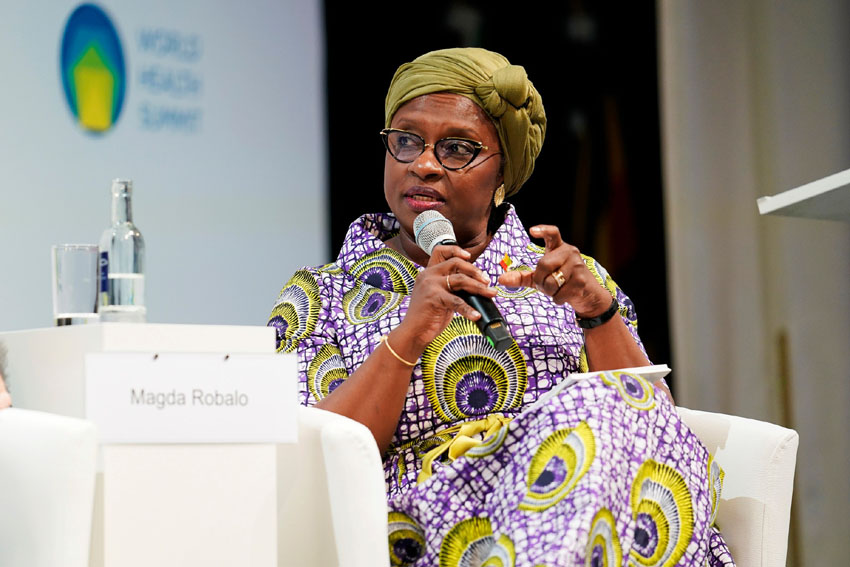
The former Ethiopian Minister of Health then went on to explain that most of the countries who now enjoy something close to UHC (Germany, Norway and the UK come to mind), implemented the policy in the aftermath of the second world war. It’s at a time they were literally “on their knees”, Dr Tedros said, explaining that quality health care services could not be divorced from meaningful economic recovery or development of a nation.
After all, a healthy nation is indeed a wealthy nation, if we take into account the damage that low life expectancies, epidemic outbreaks and poor maternal and child health wreaks on the broader economic and other developmental aspects of a nation or region.
The message was then clear to Africa and other low-medium income countries (LMICs) around the globe: poverty or lack of resources cannot serve as pretext to not joining the “bandwagon” of UHC, that the time to act is actually now and not wait until a nation’s coffers are bursting at the seams. If anything, a healthy population helps expedite sustainable economic growth.
Africans learning from each other
In his speech, Ghana’s Minister for Health, Hon. Kwaku Agyeman-Manu, lamented the lack of readiness of African health systems to learn from and collaborate with another, elaborating that his country was geared towards expanding its e-health systems and digitalization of its health industry.

This, he explained, would no doubt help to deliver health care especially in very low-resource settings, where doctors and other health care professionals could be consulted electronically. Pioneer projects are reportedly ongoing with an aim to scaling same up in the near future.
Fighting fake drugs
As always, polio, tuberculosis, malaria and HIV/Aids eradication got a mention, although, tellingly, very little tangible progress has been made in those fronts. The Bill and Melinda Gates Foundation admirably continue to fund the fight to roll back these disease entities.
One area that will no doubt be of huge interest to Africa and LMICs generally pertains to the vexed issue of substandard and falsified drugs. The session, as in the year before, was packed to the rafters.
Researchers from Germany presented a toolkit which is able to identify substandard and fake drugs on the spot by a simplified version of the physicochemical process known as Liquid Chromatography.
A representative from a big pharmaceutical company outlined the efforts his firm had been undertaking to combat the peddling of fake drugs using a sophisticated system of batch codes.
A question from a participant was of particular public interest, to wit: what to do with expired batches of drugs in low-resource settings where fresh supplies are few and far between?
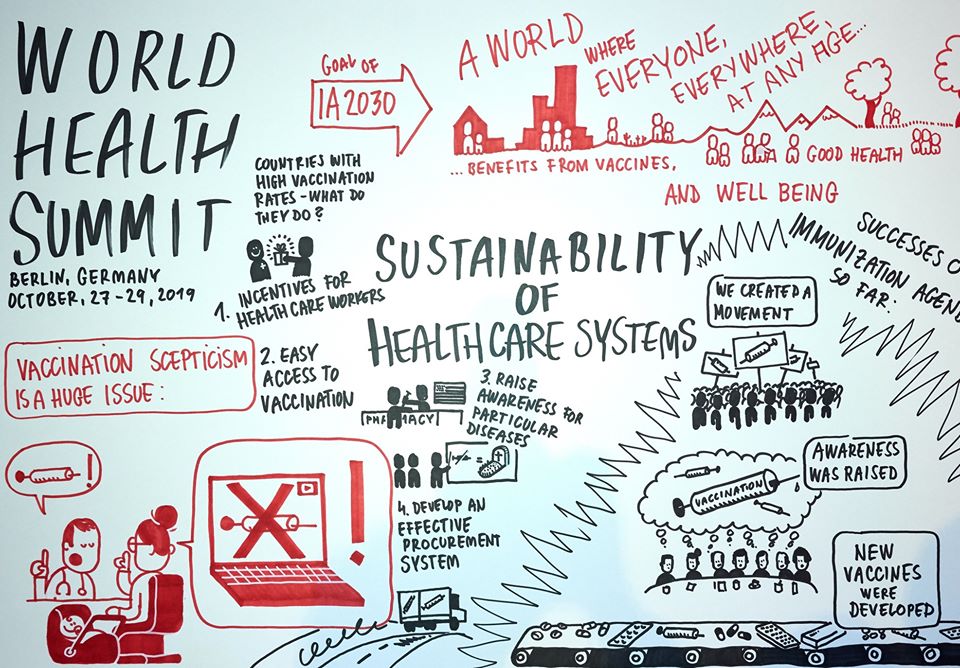
The audience was leaning towards supporting their usage regardless of the expiry date until a member of the panel weighed in with the warning that such drugs, being chemical substances, do produce potentially toxic by-products upon expiration.
In any case, the gauntlet was thrown down to the relevant public authorities and civil society to fight the scourge which is orchestrated by organized criminals and has cost millions of lives across the world. In Cameroon in particular, civil society in the form of church organizations (along with German research institutes) have taken the lead in the face of government inertia and ineptitude.
Health as political choice
Other areas of general interest that were covered at the Summit include: the threat of antimicrobial resistance, strategies to curb non-communicable diseases (such as diabetes, hypertension etc), mental health, how climate change is adversely affecting the healthcare landscape, artificial intelligence and digital health and how it can help speed up UHC endeavours in LMICs; access to medicines and neglected tropical diseases (worm infections, snake bite, etc).
To round up, Dr Tedros in his keynote address noted that “health is a political choice” that has to be made. In other words, it was down to leaders to muster the political will to initiate, implement and see through health care policies. Their countries would only be better for it.
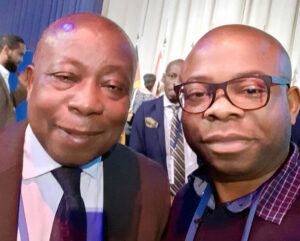
And as weapon of campaign for re-election (an obsession of every career politician), he joked, there was no better strategy, for the masses would come out enmasse to re-elect any leader who made their health a matter of priority.
The World Health Summit International Presidency passed from Tehran University of Medical Sciences to Makerere University at the conference. The next regional meeting of the Summit will therefore hold in Kampala, Uganda.
The author, Michael Nnaji, is a medical doctor at Berlin Charité Hospital
 THE AFRICAN COURIER. Reporting Africa and its Diaspora! The African Courier is an international magazine published in Germany to report on Africa and the Diaspora African experience. The first issue of the bimonthly magazine appeared on the newsstands on 15 February 1998. The African Courier is a communication forum for European-African political, economic and cultural exchanges, and a voice for Africa in Europe.
THE AFRICAN COURIER. Reporting Africa and its Diaspora! The African Courier is an international magazine published in Germany to report on Africa and the Diaspora African experience. The first issue of the bimonthly magazine appeared on the newsstands on 15 February 1998. The African Courier is a communication forum for European-African political, economic and cultural exchanges, and a voice for Africa in Europe.






























